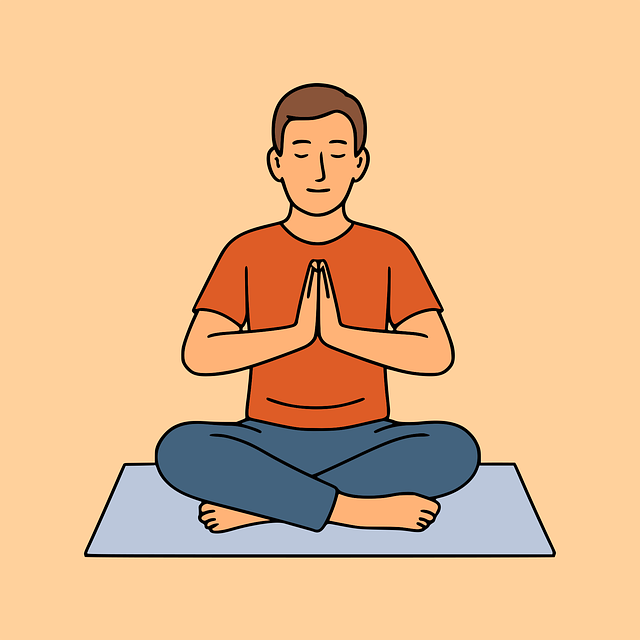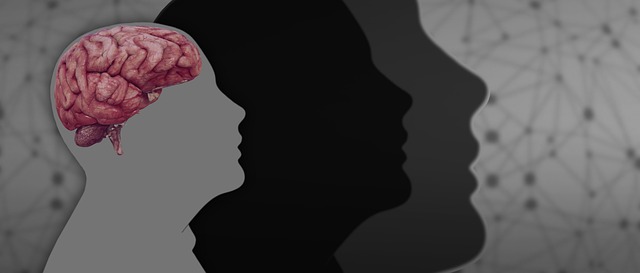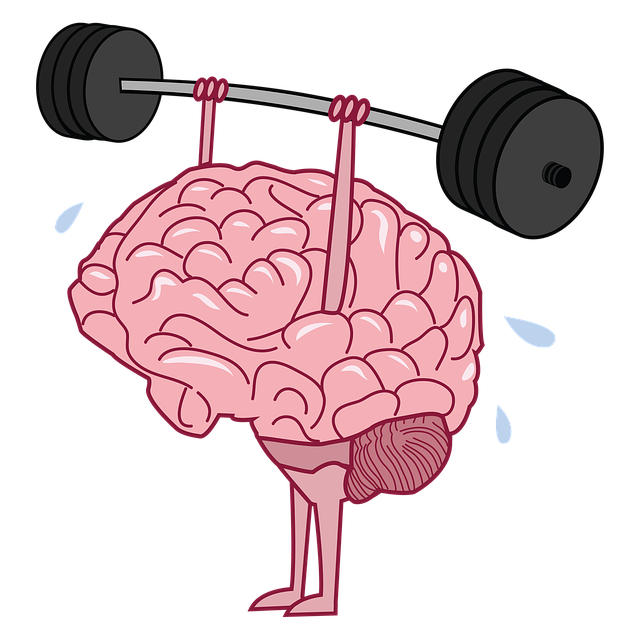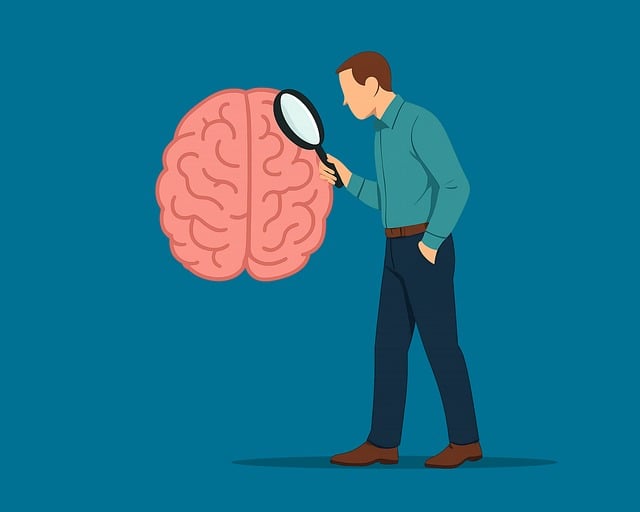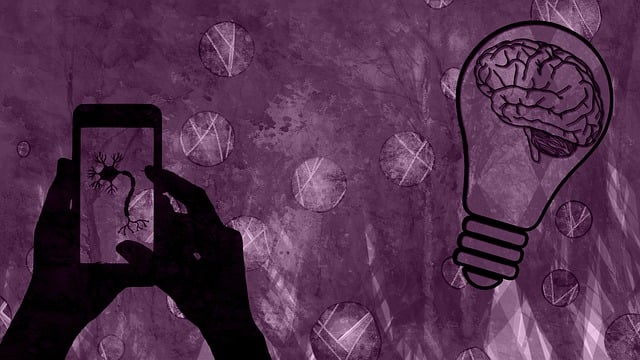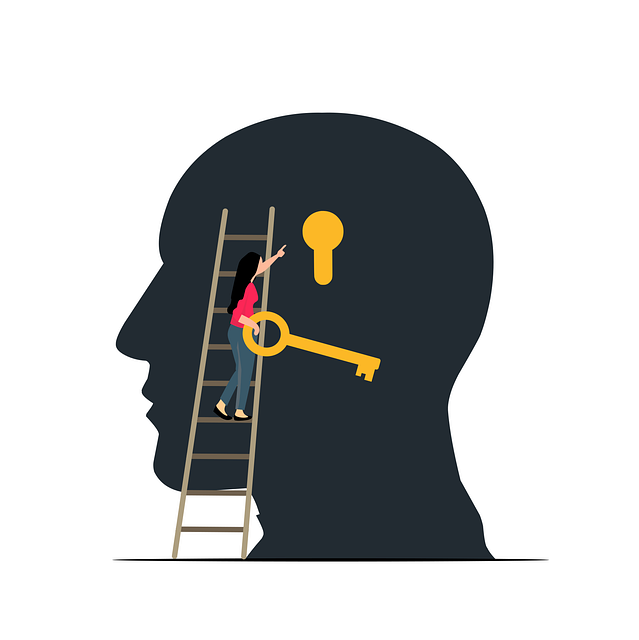Mental wellness coaching is gaining prominence as a holistic healthcare approach, empowering individuals to manage their mental health through techniques like Eye Movement Desensitization and Reprocessing (EMDR). This therapy, effective for trauma and anxiety, combines eye movements with guided recollection to process distressing memories. Coaching curricula should include EMDR as a proven trauma treatment along with risk assessment and self-esteem improvement strategies. Integrated approaches using Mind Over Matter principles and social skills training enhance resilience and self-expression. Measuring program impact through evaluations, questionnaires, and feedback ensures effectiveness while maintaining ethical standards for professionals and clients alike.
Mental wellness coaching programs are gaining traction as a vital tool in modern society, addressing the growing need for mental health support. This article explores the development and significance of these programs, focusing on evidence-based techniques like Eye Movement Desensitization and Reprocessing (EMDR) therapy. We delve into the design of effective curricula, key components for success, and methods to measure their impact. Understanding EMDR’s role in adult coaching underscores its potential as a transformative tool for mental wellness.
- Understanding Mental Wellness Coaching: A Growing Need in Modern Society
- The Role of EMDR Therapy in Adult Coaching Programs
- Designing Effective Coaching Curricula for Mental Health Support
- Integrating Evidence-Based Techniques: Key Components for Success
- Measuring and Evaluating the Impact: Assessing Program Effectiveness
Understanding Mental Wellness Coaching: A Growing Need in Modern Society

In today’s fast-paced and often stressful world, mental wellness coaching has emerged as a crucial component in addressing the growing need for holistic healthcare. This approach focuses on empowering individuals to take an active role in their mental health journey, offering a unique alternative or complement to traditional therapy. Mental wellness coaches work with clients to enhance self-awareness exercises, fostering resilience and coping strategies that are tailored to their specific needs. By integrating techniques such as Eye Movement Desensitization and Reprocessing (EMDR), coaches help individuals navigate the complexities of modern life while cultivating emotional balance.
The demand for such coaching programs is on the rise, especially among adults seeking non-pharmacological treatments for stress, anxiety, and trauma. This shift reflects a broader societal movement towards prioritizing mental wellness as an integral part of overall health. Furthermore, healthcare provider cultural competency training has played a significant role in promoting these services, ensuring that coaches are equipped to serve diverse populations effectively. Additionally, the production of Mental Wellness Podcast Series has expanded accessibility to coaching insights and techniques, reaching a wider audience eager to invest in their mental wellness.
The Role of EMDR Therapy in Adult Coaching Programs

In recent years, Eye Movement Desensitization and Reprocessing (EMDR) Therapy for adults has emerged as a powerful tool within mental wellness coaching programs. This innovative approach, recognized globally for its effectiveness in treating trauma, focuses on helping individuals process and resolve distressing memories, beliefs, or emotions. By combining eye movements with guided recollection of traumatic events, EMDR allows clients to work through deep-seated issues that have been hindering their emotional well-being and personal growth.
EMDR therapy integrates conflict resolution techniques, enabling adults to develop healthier coping mechanisms and enhance their resilience. This therapeutic process facilitates a profound sense of self-awareness and promotes positive shifts in mindset, aligning with the core principles of Mind Over Matter. Moreover, community outreach program implementation can leverage EMDR’s potential to create inclusive support networks, where individuals find solace and empowerment through shared experiences and collective healing.
Designing Effective Coaching Curricula for Mental Health Support

Effective coaching curricula for mental health support should incorporate a variety of evidence-based techniques tailored to diverse client needs. One such powerful approach is Eye Movement Desensitization and Reprocessing (EMDR), proven effective in treating trauma and enhancing emotional well-being. By integrating EMDR into coaching programs, practitioners can equip individuals with tools to process distressing memories, improve self-esteem, and develop healthier coping mechanisms.
Curricula should also emphasize the importance of risk assessment for mental health professionals, ensuring coaches are skilled in identifying potential hazards and implementing appropriate safety protocols. Furthermore, incorporating techniques for self-esteem improvement empowers clients to navigate challenges with resilience and confidence. A well-rounded coaching program that balances these elements prepares professionals to deliver comprehensive therapy for adults, fostering profound and lasting positive change.
Integrating Evidence-Based Techniques: Key Components for Success

Mental wellness coaching programs that integrate evidence-based techniques are pivotal for successful therapeutic outcomes. Specifically, Eye Movement Desensitization and Reprocessing (EMDR) therapy for adults has proven effective in treating trauma and anxiety disorders by facilitating the brain’s natural healing process. This approach encourages clients to reprocess traumatic memories, reducing their emotional intensity over time.
Complementing EMDR, Mind Over Matter principles focus on empowering individuals with cognitive strategies to manage stress and enhance resilience. Communication strategies and social skills training further support these efforts by improving self-expression and fostering healthier relationships. These integrated techniques create a holistic coaching experience, catering to diverse aspects of mental wellness.
Measuring and Evaluating the Impact: Assessing Program Effectiveness

Measuring and evaluating the impact of mental wellness coaching programs is paramount to understanding their effectiveness. This involves using robust methodologies to assess changes in participants’ mental health, well-being, and overall quality of life before and after the program. Standardized questionnaires, interviews, and self-reported measures can capture improvements in symptoms, coping strategies, and resilience. For instance, techniques like Eye Movement Desensitization and Reprocessing (EMDR) therapy for adults have shown promise in reducing trauma-related symptoms when measured through validated scales.
In addition to direct assessments, evaluating program effectiveness should incorporate feedback from participants, coaches, and other stakeholders. This qualitative data provides insights into the perceived benefits, challenges, and areas of improvement. Moreover, integrating Risk Management Planning for Mental Health Professionals, Crisis Intervention Guidance, and Burnout Prevention strategies within evaluation frameworks ensures that programs not only succeed in improving mental wellness but also uphold ethical standards and support professionals’ long-term well-being.
Mental wellness coaching programs are evolving to meet the growing demand for holistic mental health support. By integrating evidence-based techniques, such as Eye Movement Desensitization and Reprocessing (EMDR) therapy, these programs can significantly enhance their effectiveness. Designing curricula that focus on practical skills and emotional resilience equips individuals with tools to navigate life’s challenges. Measuring impact through rigorous assessment ensures the success of these initiatives, fostering a healthier and more resilient society. For adults seeking therapy, these coaching programs offer a promising path towards improved mental wellness.

